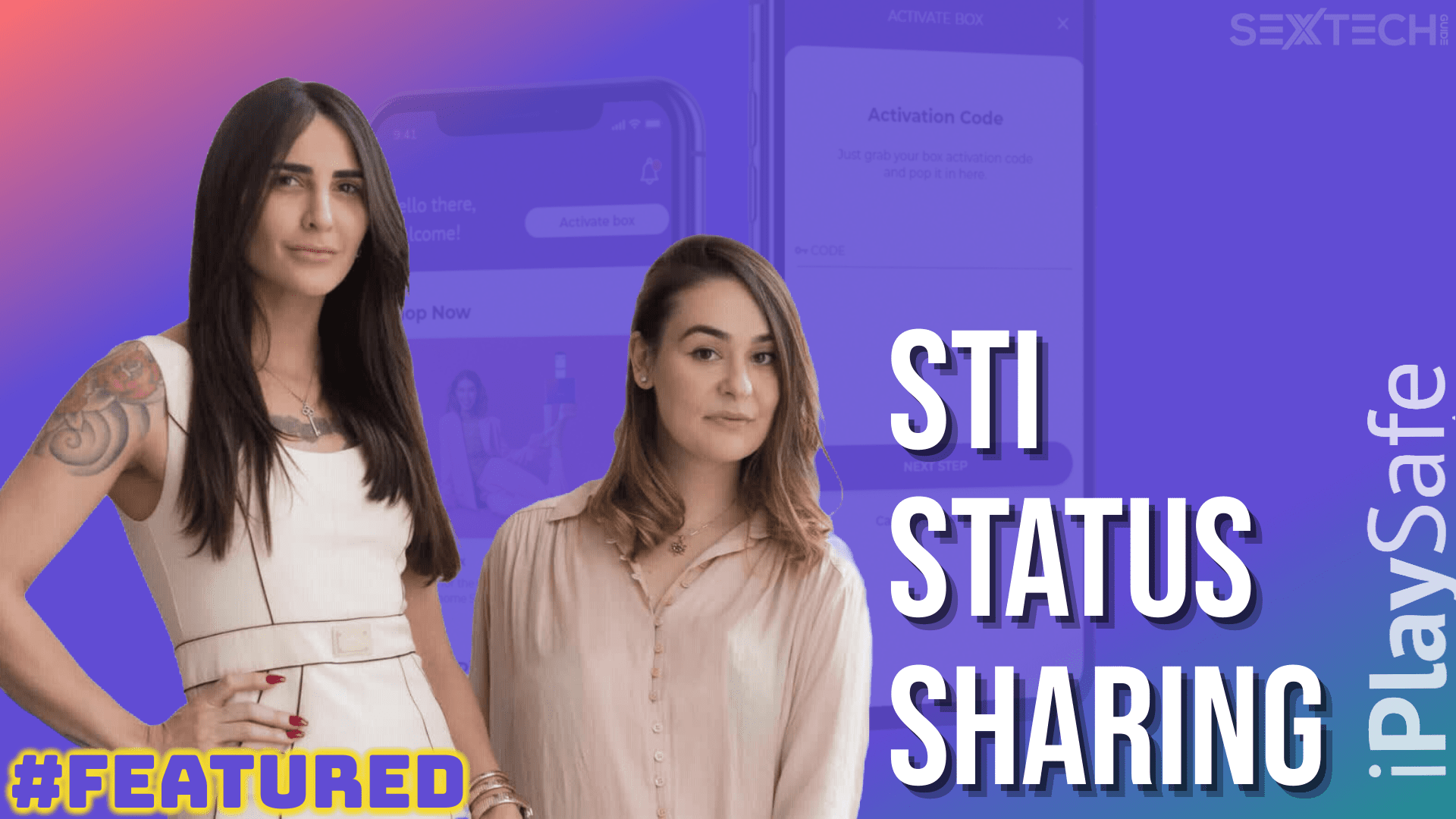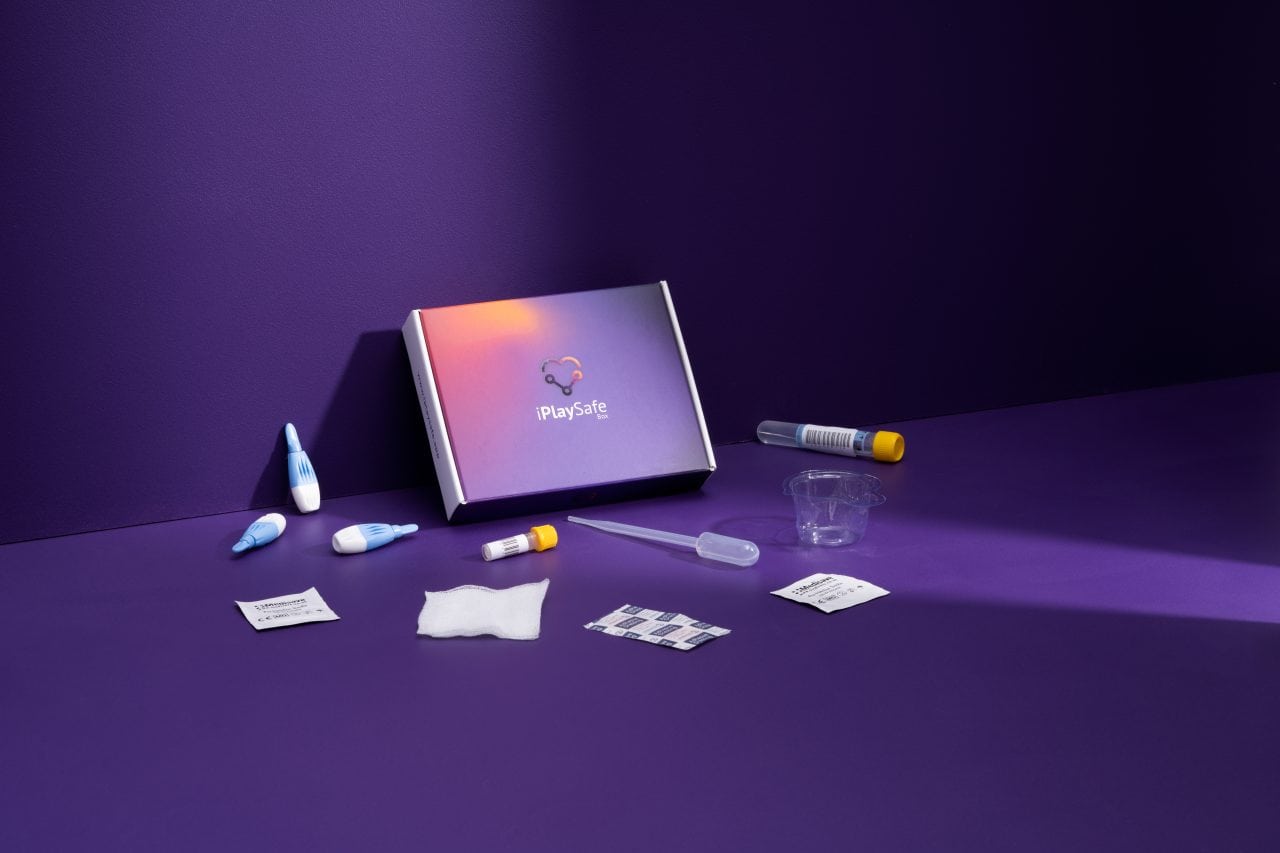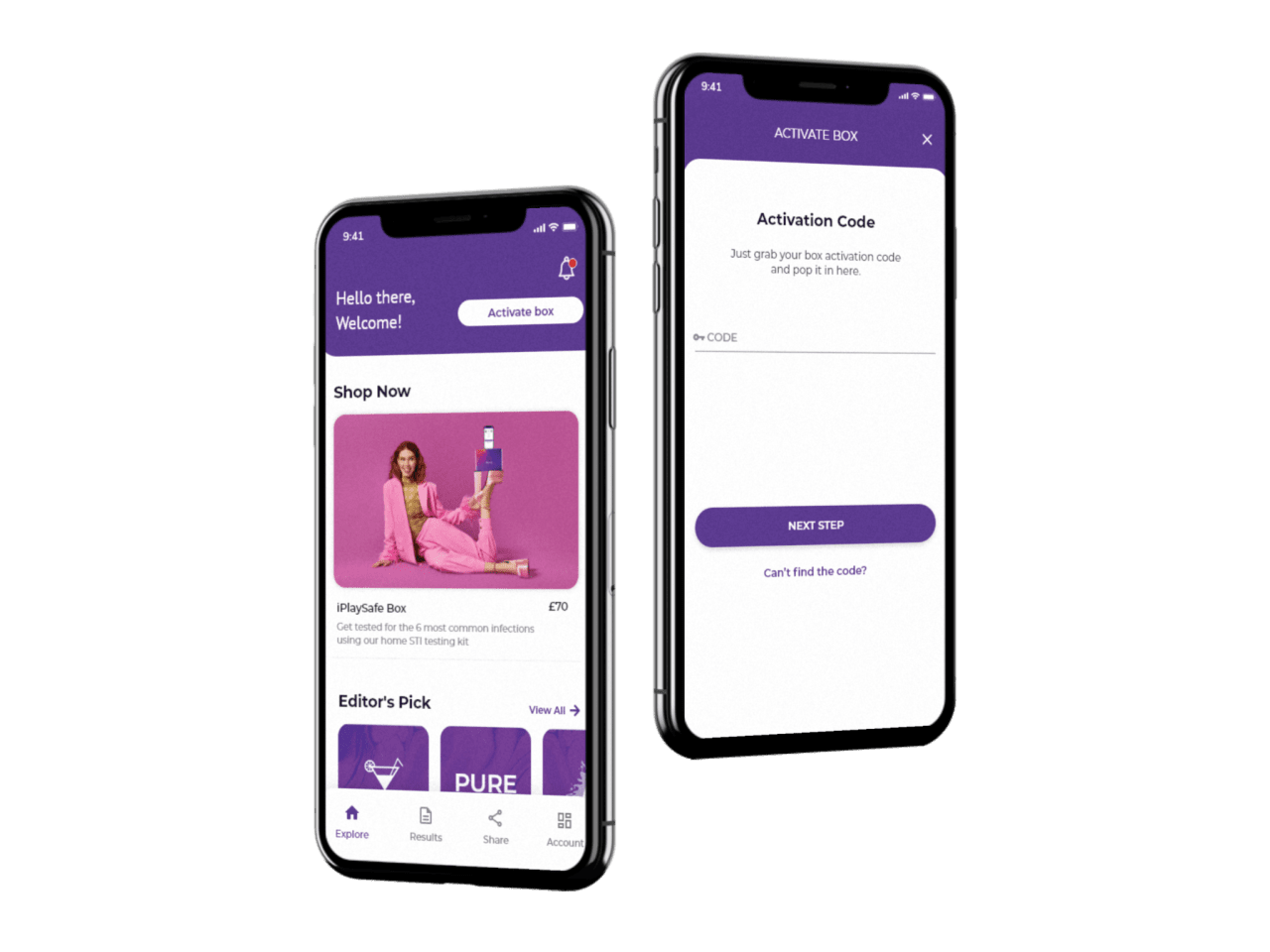‘Dating apps pretend they’re not about sex’: iPlaysafe is fighting to normalise STI status sharing

When it launched in late 2021 in the UK, the iPlaySafe app seemed like a mildly glamorous way to share your sexually transmitted infection status with someone before having sex with them.
You downloaded the app, paid £99 for an STI home-testing kit (since reduced to £70) to be discreetly sent to you, did urine and blood tests at home, then sent off your samples to a lab. Soon afterwards your iPlaySafe app updated with your statuses for STIs such as chlamydia, gonorrhoea, HIV, syphilis, hepatitis B and hepatitis C. You could share your results with another app user, or just show them the app on your phone.
If your results were negative you had easy-to-share verification that you were potentially good to get down, with the app billed by its makers as “an effortless way to play safe”. If you tested positive for an STI, the app provided information about next steps for medical advice.

“I did use the app myself,” Georgia Di Mattos (pictured above, left), who co-founded iPlaySafe with her friend Bianca Dunne (above, right), tells SEXTECHGUIDE.
Di Mattos is in a non-monogamous relationship with her hedge-fund manager husband, and attends high-end sex parties. She says she never has sex without a condom in such situations, and that after the app launched she used it to share her STI status with new sexual partners.
“I was like, ‘They’re gonna think I’m hard-selling things’,” she says, laughing on a Zoom call from her London home. “They’re gonna think I’m doing it for them to buy a kit. But I got over that mentality, and I do feel more responsible: ‘OK, if I have this crazy lifestyle, I’m doing the right thing’.”
Circumvent Big Tech's Censorship! Never miss another post!
Subscribe to our notifications!
Article continues below
Di Mattos and Dunne launched iPlaySafe with a view to normalising the sharing of STI status, whether you go to glamorous exclusive orgies or not. Their ultimate goal is the app’s integration with dating apps, where you could share your STI status like you share your Covid vaccination status.
So far, however, mainstream dating apps have been resistant, and iPlaySafe has had a slow start. Di Mattos, however, is persistent.

Dating app frustrations
According to Di Mattos iPlaySafe has been downloaded more than 10,000 times, but only around 300 of its home testing kits have been sold. Most kit buyers are in the 30-45 age bracket, with a male/female split of around 70/30. The gender split surprised Di Mattos, and can partly be explained by iPlaySafe recruiting male mixed martial arts (MMA) fighters to promote it.
Di Mattos says that app downloads rather than test kits sales have always been the main priority, as they help build a wider community and potential customer base. But the fact remains that 300 home test kit sales out of 10,000+ app downloads is a low conversion rate. To succeed in the UK iPlaySafe might need bigger dating app muscle.
This is where Di Mattos’ frustrations lie. Attempts to speak to big dating apps such as Tinder about integration have proved fruitless. On one hand this is perhaps surprising, considering Tinder’s recent attempts to rebrand itself as pro-safety and promoting wellness. On the other it’s understandable, with many dating apps reluctant to publicly acknowledge that they are, essentially, hook-up apps.
“They’re still pretending that sex is not part of their businesses, which is really disappointing… it’s crazy,” says Di Mattos. “Bumble has a feature where you can match based on people who have been vaccinated. On Tinder you can share your Instagram profile. Why not share your iPlaySafe profile as well?”
Di Mattos says that considering that dating apps have had bad press for allegedly facilitating promiscuity and unsafe sex, integration with iPlaySafe would show that they wanted to tackle health problems. She’s not managed to have a meeting with anyone at Tinder, despite repeated attempts. “But we will not give up,” she says.
All abroad the STI testing train
Another reason iPlaySafe’s home testing kit sales are low is because you can essentially get the same basic service free in the UK from the NHS, at clinics or via a home-testing kit.
NHS results are not delivered by app, and with these free services you don’t get the trendy association with iPlaySafe. The company’s branding looks more like that of a youth-orientated fashion house than a disease detection service, and its founders’ high-end lifestyles are part of this marketing. When the app launched Di Mattos and Dunne were photographed and interviewed for The Times newspaper’s glossy magazine in Di Mattos’ dramatically chic home.
“Students, unfortunately, can’t afford to buy our boxes, I guess,” says Di Mattos. “This is premium, it’s more like a community that brings extra sexiness to your sex life. Otherwise, you can get it free from the NHS.”
“This is premium, it’s more like a community that brings extra sexiness to your sex life.”
Georgia Di Mattos, iPlaySafe co-founder
Di Mattos and Dunne are hoping to launch iPlaySafe in Europe, where free STI testing kits are not always so easily available. Being a medical service, this is not an easy or cheap move, with many stages of approval needed before being able to provide a health service in a new region.
If they can enter a market more used to paying for medical services than the UK, though, it could be a game changer for iPlaySafe.
“It’s time consuming and very expensive,” says Di Mattos. “But once in a while we receive emails from people [abroad], normally America but also Germany and the Netherlands, saying, ‘When is your service coming to these areas?’. We’re curious to see how iPlaySafe is going to be received in places where you have to buy those services.”
Keep on playing safe
Integrating with mainstream dating apps is the holy grail for iPlaySafe, but it’s hard to imagine a social media profile linked to a £70 service becoming truly mainstream on an app such as Tinder.
Di Mattos reiterates that iPlaySafe app downloads, rather than home test kit sales, are her priority. She says the company is hoping to work with a variety of other STI testing services in the UK, that could be lower-cost or free, like the NHS, but that could still use the iPlaySafe app to display the status and for a user to share it. So, wherever you got your STI test done, you could share the results on iPlaySafe.
This is another long-term ambition for iPlaySafe. And unless the big dating apps accept their statuses as largely being hook-up apps, and embrace STI status openness as a positive, healthy norm, it’ll be challenging to achieve.
Di Mattos is unwavering when asked if she’ll stick with the app. “We still are very young,” she says. “It might not be [progressing] as fast as we thought, but we can see the traction increasing. We still want to keep trying for at least a few more years.”
“Ask me again in two years. We still have the power and energy to fight. 100 percent. Yes,” she adds.
Read next: Dating appdates: Earn crypto by masturbating, Christian app controversy and ‘Tinder for kids’






